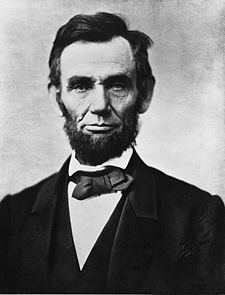With the excitement of the Inaguaration of Barak Obama as President, I have seen some very interesting examination of the fact and myth surrounding one of our greatest Presidents, Abraham Lincoln. Some historians question the portrayal of Lincoln as the “Great Emancipator”, noting that his Emancipation Proclamation (initially issued in Sept. 1862) freed the slaves only in those states under rebellion, and did not, in fact, free the slaves in those border states ( Delaware, Maryland, Kentucky and Missouri) that allowed slavery but had remained loyal to the North. In fact, the Proclamation also did not free the slaves in any area in the South that was then under Union control, including the State of Tennessee. The slaves in these border states were not freed until some of those states banned slavery after the war or until the passage of the 13th Amendment in December 1865, 8 months after Lincoln’s death.
Some critics have questioned why Lincoln chose to ban slavery only in those states over which he had no control to implement the order, and did not ban slavery in those states or areas over which he did have the ability to enforce it. The answer to this is a legal one (See http://www.historynow.org/12_2005/historian.html for an excellent article on this issue) During this time, Lincoln realized that he had no legal authority to ban slavery under the Constitution. As a war-time President, however, he had the power to issue emergency proclamations affecting the area under rebellion. President Lincoln issued the Emancipation Procalamation to disrupt the economy of the South.
Early in Lincoln’s political career, he made it a point not to be labeled an “abolitionist” , which would have been political suicide at the time. He had also promoted several proposals to recolonize Africa with American former slave expatriates. He did, however, many times express his opposition to slavery, and after his reelection to a second term in 1864, pushed for the passage of the 13th amendment to ban slavery in all states, and Congress submitted the amendment to the states for ratification in January 1865, 4 months prior to the end of the war and his assassination.
Although Lincoln was not at the fore-front of the abolishionist movement, he was instrumental in moving the anti-slavery movement forward. He was a practical man recognizing the political realtiies of the day, and will forever be regarded as one of the greatest U.S. Presidents for his role in preserving the Union.
For more about the local history of the South bay Los Angeles beach communities, visit my website at https://www.maureenmegowan.com
For more information about Palos Verdes and South Bay Real Estate and buying and selling a home on the Palos Verdes Peninsula, visit my website at https://www.maureenmegowan.com . I try to make this the best real estate web blog in the South Bay Los Angeles and the Palos Verdes Peninsula. I would love to hear your comments or suggestions.





